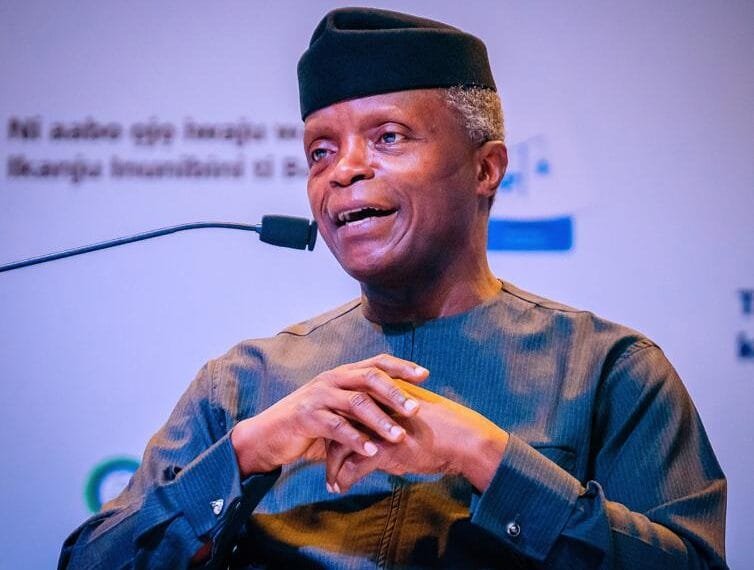At the 2024 Women in Management, Business, and Public Service (WIMBIZ) conference, former Vice President Yemi Osinbajo called on President Bola Tinubu to urgently address Nigerians’ welfare as the country faces escalating economic challenges. Osinbajo emphasized that essential areas like food, transportation, and housing have become unaffordable for many, calling for comprehensive social welfare and healthcare programs to ease the burden.
“The cost of living is overwhelming Nigerians’ hope for survival,” Osinbajo said, drawing attention to the worsening food insecurity, particularly among children. He urged the government to reinforce support systems to ensure access to basic needs.
Osinbajo also highlighted Nigeria’s literacy crisis, especially in northern regions, where over 67% of women are reportedly illiterate. “A nation where half the population is socially and economically disempowered due to illiteracy will struggle to develop,” he warned, stressing the necessity of large-scale interventions in education and economic empowerment.
Read also: Jindal Group to invest $4 Billion for Steel Plant in Akwa Ibom in exchange of Natural Gas
The conference, themed “Dream, Dare, Do,” saw Osinbajo commend WIMBIZ for its resilience in promoting impactful change. He pointed out the immense pressure Nigerian entrepreneurs face to maintain an image of success that often does not match financial reality. “There is immense pressure on Nigerian business owners to sustain an appearance of success that their businesses cannot always support,” he added.
Omowunmi Akingbohungbe, Executive Director of WIMBIZ, addressed challenges facing women in leadership, including stereotypes and self-doubt, while advocating for greater representation of women in decision-making roles. “WIMBIZ is working to change the narrative on national impact by pushing for policies that increase women’s participation in leadership,” she said. Akingbohungbe highlighted the organization’s goal of achieving at least 35% female representation in leadership roles to strengthen governance.
Comparing Nigeria’s 6% female parliamentary representation with over 45% in countries like Rwanda, Senegal, and South Africa, Akingbohungbe emphasized, “This isn’t about pitting one gender against the other—it’s about recognizing the value that both bring to leadership.”






